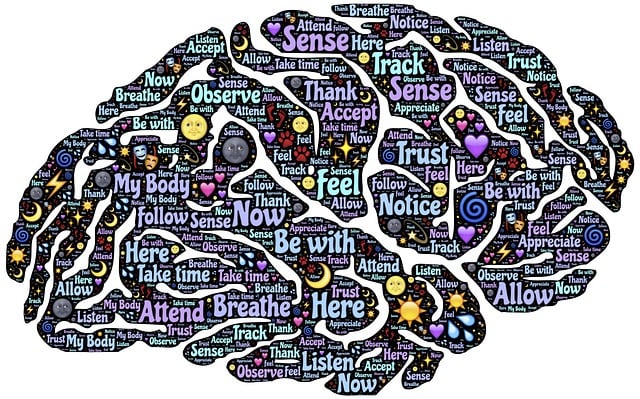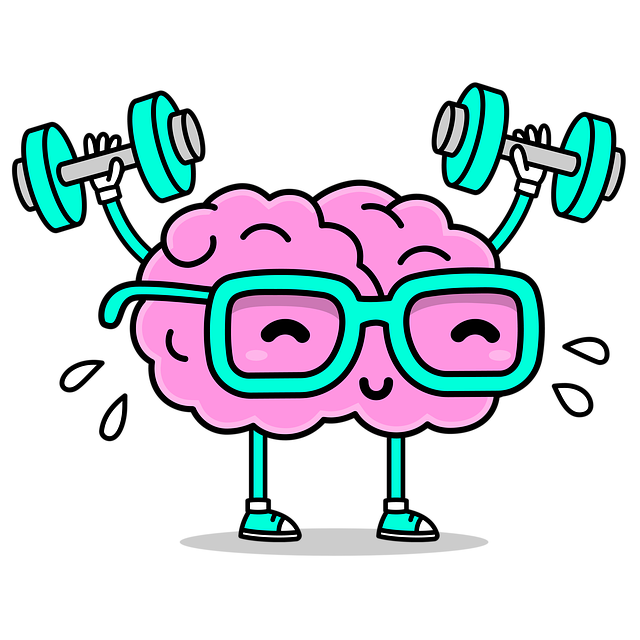The text highlights the mental health challenges faced by adolescents, particularly after parental divorce, emphasizing the role of therapy and self-care in building resilience. Marketing strategies for mental wellness apps should focus on educating families, reducing stigma, and offering age-appropriate tools. Targeting teens through digital platforms, leveraging social media, and optimizing SEO with keywords like "Therapy for Adolescent Teens Divorce" increases reach. Building trust by demonstrating empathy, cultural sensitivity, and positive messaging fosters a supportive community for this vulnerable demographic.
Mental wellness apps play a pivotal role in addressing adolescent teen mental health, especially during stressful life events like divorce. This article explores an effective marketing strategy development for such apps, focusing on understanding the unique needs of teens and their families. We delve into targeted marketing approaches, compelling messaging highlighting therapy benefits for divorce situations, efficient digital channels, and building trust through supportive brand imaging. By implementing these strategies, mental wellness apps can better reach and engage their audience.
- Understanding Adolescent Teen Mental Health: Identifying the Need for Support
- Targeting the Right Audience: Marketing to Teens and Their Families
- Crafting Compelling Messaging: Communicating Therapy Benefits for Divorce Situations
- Choosing Effective Marketing Channels: Digital Strategies for Reach and Engagement
- Building Trust and Community: Creating a Supportive Brand Image
Understanding Adolescent Teen Mental Health: Identifying the Need for Support

The mental health landscape for adolescents and teens is a complex and ever-growing concern in today’s society. This demographic faces unique challenges that can significantly impact their overall well-being, including increased stress from academic pressures, social media influence, peer relationships, and often, family dynamics. One significant factor that contributes to teen mental health issues is divorce or separation of parents. Such life events can lead to a myriad of emotions, causing teens to feel lost, confused, and isolated.
Recognizing the need for support in this critical period is essential. Therapy for adolescent teens going through divorce or other traumatic family changes plays a vital role in helping them develop coping strategies and build resilience. Encouraging self-care routine development can also be a game-changer. By incorporating practices like mindfulness, exercise, and journaling, teens can actively participate in bettering their mental health. Moreover, reducing the stigma surrounding mental illness is crucial; it empowers adolescents to seek help without fear of judgment.
Targeting the Right Audience: Marketing to Teens and Their Families

Reaching out to teens and their families is a strategic move for mental wellness app marketers as this demographic often faces unique challenges related to emotional well-being. Many adolescents struggle with anxiety, depression, or coping mechanisms during and after pivotal life events such as divorce. Therapy for adolescent teens divorce can be a sensitive yet essential topic, prompting parents to seek support for their children. Marketing efforts should focus on educating families about the importance of mental health awareness early in life.
By promoting self-awareness exercises and self-esteem improvement techniques tailored for teens, apps can gain traction. Targeting this audience requires a nuanced approach, ensuring content is age-appropriate yet powerful enough to encourage users to take charge of their mental wellness. Engaging parents by highlighting the benefits of early intervention and providing resources to support their role in fostering healthy minds can be a compelling strategy.
Crafting Compelling Messaging: Communicating Therapy Benefits for Divorce Situations

When crafting messaging for a mental wellness app targeting teens going through divorce situations, it’s crucial to communicate therapy benefits that resonate with their unique challenges. Many adolescent teens struggle with feelings of confusion, anxiety, and social isolation during and after parental separation. Highlighting how your app can provide a safe space for them to process these emotions is essential. Emphasize the discreetness and accessibility of therapy sessions, ensuring teens feel comfortable expressing themselves without fear of judgment.
Incorporate messaging that speaks to the development of inner strength and social skills. Mention features like guided meditations or interactive exercises designed to enhance emotional intelligence and coping mechanisms. Additionally, a Mental Wellness Podcast Series Production can engage teens by sharing inspiring stories of resilience and recovery from divorce situations, further emphasizing that therapy is not just about overcoming challenges but also personal growth and building a supportive network.
Choosing Effective Marketing Channels: Digital Strategies for Reach and Engagement

In today’s digital era, marketing mental wellness apps requires a strategic approach that leverages powerful online channels for maximum reach and engagement. Targeting specific demographics such as adolescent teens facing divorce-related stress or those seeking therapy, your marketing efforts should focus on platforms where your audience is most active. Social media, with its ability to connect individuals sharing similar experiences, can be an invaluable tool. Engaging content that addresses Mental Health Awareness and promotes Resilience Building strategies will resonate with users struggling with mental wellness issues.
Utilizing search engine optimization (SEO) techniques around keywords like “Therapy for Adolescent Teens Divorce” ensures your app appears in relevant searches, expanding its reach. Additionally, collaborations with influencers or mental health advocates can amplify your message, fostering trust and credibility. By combining targeted digital strategies with compelling content, you can effectively connect with those in need, emphasizing the app’s ability to support and improve Mental Wellness.
Building Trust and Community: Creating a Supportive Brand Image

Building trust and fostering a sense of community are paramount when marketing mental wellness apps, especially those catering to vulnerable populations like adolescent teens post divorce. Crafting a supportive brand image involves communicating empathy, understanding, and non-judgmental support. This is crucial in encouraging individuals to open up about their struggles and seek help without hesitation.
Cultural sensitivity in mental healthcare practice plays a significant role here. Recognizing and respecting diverse cultural backgrounds, beliefs, and traditions can create a safe space for users from various communities. Incorporating this into marketing strategies through targeted messaging and content that resonates with specific cultures can significantly enhance trust. Moreover, promoting positive thinking and emphasizing the potential for growth and healing post-divorce can be a powerful tool to engage and retain users, positioning your app as an integral part of their support network.
Marketing a mental wellness app focused on therapy for adolescent teens facing divorce situations requires a multifaceted approach. By understanding the unique needs of this demographic, targeting the right audience through digital channels, crafting compelling messaging that highlights the benefits of therapy, and building trust within a supportive brand image, businesses can effectively reach and engage teens and their families in need. Incorporating these strategies ensures your app stands out as a valuable resource for mental wellness support during challenging life transitions.









